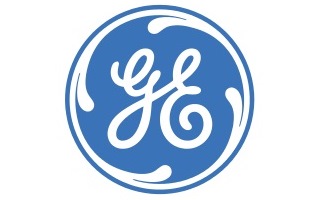Industrials
GE Financial Asset Sales Might Not Be as Good as Some Think
Published:
Last Updated:

Among the challenges Moody’s sees are the accelerated sales of some $200 billion in GE Capital assets and the pending share exchange with Synchrony Financial (NYSE: SYF) as GE gets out of the retail finance business. The impact on shareholders comes as GE dials down its cash payments, which have relied on cash distributions from GE Capital. GE’s operational earnings and cash flow, absent the cash from GE Capital, do not yet support further increases in payouts to shareholders.
According to Moody’s:
The pending sale of GE Capital assets, which includes a plan to allocate around $90 billion to shareholder distributions over the next three years and implicitly ends the dividend income stream from GE Capital, confirms the more aggressive financial policies we have been noting in our research of late. Even so, we anticipate that cash outlays to equity investors and/or for future M&A opportunities will continue to be predicated upon internally generated cash flows and asset sales, specifically including liquidity inflows from GE Capital and other potential modest dispositions within GE’s current base of industrial operations.
ALSO READ: 10 Stocks to Own for the Next Decade
GE has also announced aggressive plans to cut costs, but, Moody’s notes, “[T]he long-dated nature of GE assets suggests that we won’t likely see the real benefits until 2018-2020.” The analysts believe that GE’s plan to become a more industrially focused enterprise is “directionally the right one, but the credit positive impact is longer term in nature.”
Considerations of GE Capital aside, GE is also shaking up its industrial business with its $17 billion acquisition of Alstom’s energy business and it faces macroeconomic issues in its other business lines. Low oil prices and foreign exchange risk are particular risks to the company’s free cash flow when viewed in tandem with higher spending on GE’s aircraft engine, gas turbine and locomotive businesses.
In April Moody’s downgraded GE’s senior unsecured debt rating from Aa3 to A1, and the ratings agency and believes that is the credit profile that best suits GE:
GE remains one of the largest industrial companies and competes well in most areas. Over time, the company will have markedly reduced its exposure to lower margin businesses — in particular, financial services — all the while investing more heavily in higher margin service businesses. … Without the heretofore much larger finance arm as a key profit center, the parent company’s much higher former ratings are deemed less essential.
Moody’s expects GE Capital to contribute less than 10% of consolidated company earnings by 2018, down from a peak of 57% in 2007 and 42% in 2014. The effect is to get GE Capital out from under the heading of a systemically important financial institution and out of the regulatory oversight of the federal Financial Stability Oversight Council with its high levels of capital reserve requirements.
ALSO READ: Major Portfolio Changes for Warren Buffett and Berkshire Hathaway
GE shares posted a 52-week high on April 10, the day the company announced its plan to shed assets and return billions to shareholders. Some of that gain has been given back, but the stock still trades close to that new high. Shares closed at $27.72 on Thursday and opened around $27.70 on Friday. The 52-week trading range is $23.41 to $28.68. The consensus price target on the stock is $30.15, with the highest target at $33.00.
Finding a qualified financial advisor doesn’t have to be hard. SmartAsset’s free tool matches you with up to 3 fiduciary financial advisors in your area in 5 minutes. Each advisor has been vetted by SmartAsset and is held to a fiduciary standard to act in your best interests. If you’re ready to be matched with local advisors that can help you achieve your financial goals, get started now.
Thank you for reading! Have some feedback for us?
Contact the 24/7 Wall St. editorial team.